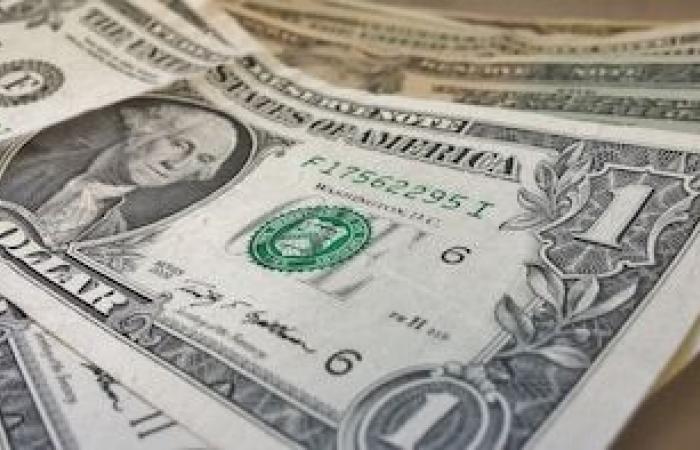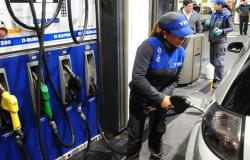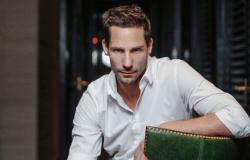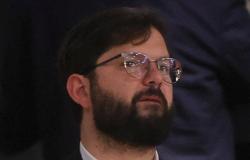Not so good, not so bad
The official version of the Argentine state, embodied in decrees 652/2022 and 653/2022, dictated by the previous administration, argues that the Country faces an average risk of terrorism financing and an average risk laundering riskwhich somehow seems to justify the brief results obtained when measuring the impact of the criminal sanctions that fell on those responsible for these punishable acts: the annual average between January 2019 and March, 2024 is of no conviction for financiers of terrorist acts or actors, 17 sentences to prison penalty for washing machines (several of them, of a conditional nature) and about 100 million pesos seized.
At the end of last year, the Financial Action Group (FATF-GAFI), an intergovernmental mechanism that evaluates globally the implementation of standards in this area, expressed concern about the existing deficiencies in the country in regard to the understanding of the modus operandi of these illegal practices. In particular, He warned about the improper use of informal financial services and opaque legal persons. However, he concluded that the national system had improved the understanding of risks, especially in cases of washing.
The message that emerges from these norms and directives, organized with a language of apparent technical neutrality and a forced spirit of political correction, is that moderation is the guideline to address the probability that money is labeled as a result of the crime or terrorism is financed: the paradox is that – even without wanting it – with this perspective the intrinsic invisibility of these threats is reinforced. It is known that washing machines and financiers act clandestinely, leave no immediate evidence, or need violence to consummate their operations. Although corroding the institutional order in its foundations, these are facts that do not produce a rapidly noticeable impact, nor generate social alarm.
Thanks to these formalized official speeches, it can be concluded that there is not too much to worry about: the status quo should not be altered.
However, in our concrete reality there is a series of alarms that have been setting intermittently on events that not all eyes manage to decipher.
How far does the financial and logistics plot come that allows a cereal ship to arrive at the port of San Lorenzo, in the province of Santa Fe, with 469 kg of cocaine to Europe -definedly intercepted by the IIF and the Federal Prosecutor’s Office?
What platform of economic interests allowed a federal judge of Rosario to become an extortion, manipulation and cover -up device with other known characters of the Rosario Society -continuously accused by the specialized prosecutors Procel and procunction?
In addition, With what reach is that the Hezbollah terrorist organization is reorganizing its deteriorated Economic base in Lebanon reconnecting its traditional financing enclaves, including the smuggling corridor that historically characterizes the area of the triple border -according to the latest reports produced by specialists and reliable agencies?
Finally, what economic ties are articulated in the Patagonia region with the predation of our ichthy resources in the confines of our maritime platform, considering that – despite the complaint they formulate in solitude respected scholars in the field – not even these facts are classified as a risk?
Only examples are mentioned the events and reactions of these last days that, observed with some attention, are chained in a dense and extensive plot of episodes that indicate that drug traffickers, smuggers, terrorists and environmental predators are richer and more powerful than the globalist progressivism that evaluated these risks thought.
Global standards encapsulate reality with the illusion of achieving a clarification of universal scope about the evils to be conjured. However, a threat is a potential real damage to my life, to the order in which I bet to live with others. Therefore, the full understanding of what puts me in check can never come from an actuarial calculation, nor from a mathematical formulation, but an approach and a purely political positioning. This is the only legitimate way to identify the enemies of the common good, to disrupt their corrupting power and, finally, neutralize them from what hurts them most: their illicit economy.
A state that leaves this task in the hands of international consultants or agencies, in short, to defend their most valuable national interests.
The misunderstanding of risks is also generated by acritically continuing countries with highly regulated and formalized economies, which international organizations like to present as “integrity models”, but drug traffickers in Argentina use the same legal structures that agricultural producers use to obtain credits or change checks. The cave of our trust also changes currencies for pesos resulting from extortion in the street carried out by bars+narcos+hitmen. Political campaigns (nobody means it out loud) they nourish financing of unknown origin. It is a part of the Argentine tragedy.
Therefore, accepting that it seeks to protect a stable and transparent economy -deliberately sign that 25% is submerged in informality -, the fight against money laundering and terrorist financing completely lost its realism. This would mean admitting less ambitious objectives: there are risks that are eradicated, but there are others that are tolerated, with the sole objective of maintaining certain acceptable levels of social coexistence, appropriate to the Argentine context (not from Switzerland).

The identification, measurement and evaluation of money laundering activities and terrorist financing in this matter oscillates between considering these facts as a risk (a threat that has probbilities to prosper for the vulnerabilities of the given system and thus produce an impact) and, at the same time, a crime (an unfair and guilty action). It is the global standard itself that produces a “Systemic noise” in state agencies responsible for treating these activities as suspicious and/or as criminal. In Argentina a national complex system, which has obliged subjects from the private sector and a financial intelligence producing body, ends up simplifying absurdly in the search for a punitive response.
The result could not be worse: the instruments with which judges and prosecutors work is hardly suitable for investigating and judging conventional crimes. To reach a pronouncement based on parallel financial investigations and that manages to dismantle significant criminal organizations, we will have to wait no less than ten years.
An adequate criminological method is not applied to measure the dimension of the benefit generated by the commercialization of narcotics in a critical area such as the one that makes up the geographical corridor that exists between the city of Buenos Aires, the Buenos Aires Conurbano, on the one hand, and the city of Rosario and its port, on the other, even when there are manifest evidences that it is where drug trafficking generates its greatest dividends.
The same goes for the smuggling of goods that characterizes Ciudad del Este with an impact on the cities of Iguazú and Foz de Iguazú. There are no current estimates about the values that are referred to by the Syrian-Libanese community of the area to Chiite religious organizations that cooperate with Hezbollah leaders to ensure the continuity of their influence in the Middle East
Nor are there precise measurements about the economic results of the scandalous exploitation of natural resources on the maritime continental platform, where Chinese, British, Spanish and other nations foreign ships, operate without sufficient inspection, beyond mile 200falsely protected by the criterion that the open sea is free and thus predate specimens born and developed in our exclusive economic zone.
The low use of satellite images and filming through drones, indispensable tools to calculate a significant part of the movements of prohibited marketing goods, evidences the enormous vulnerability of our state. This technological deficit adds a key factor that hinders the understanding of the risks of money laundering and terrorism financing.
Faced with the threat representing clandestine economies, members of the political caste -in this field no other denomination is more appropriate -, they usually assume the role of “beautiful souls”: they rehearse
Although security is an essential obligation of administrator power, thus avoid implementing disruptive actions that put an end to illegal businesses. They ensure, not to pay the sectorial costs that make them feel those that manage the extended and influential circulation networks of clandestine assets that have penetrated the state’s own heart.
If in the new risk assessments, already detached from the ballast of the ideology of globalist progressivism, some of the axes pointed out here are not seriously considered, the result will continue to be the same: a national system that aims to combat severe safety risks, without understanding them, will continue to be ineffective.
However, making light on the threat that represents the instrumental use of money linked to critical illicit configurations is not only a physical optics task, but rather an exercise of political ethics. This requires nothing less than the coordinated confluence of the four cardinal virtues as ordering vectors of the functioning of the National Anti -Right System of Assets and Contrafinanciation of Terrorism: Prudence, Justice, Strength, Temperance.
It is possible that we could truly be safe, which implies hope, a virtue that, in truth, does not explain the miseries of the earthly world, but the divine bliss that only encourages believers.








